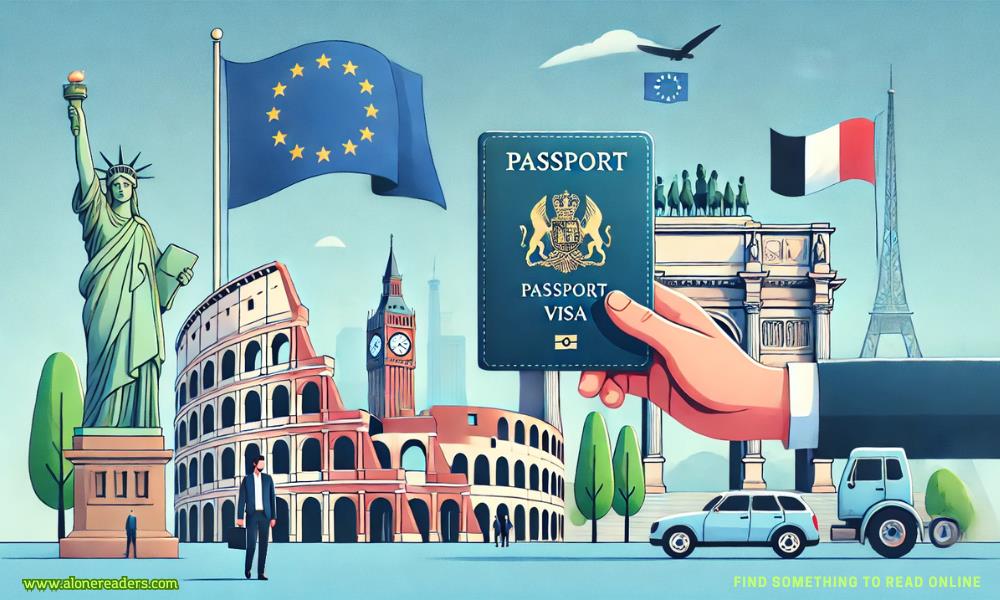Page 115 of Sting
Morrow nodded. “Immediately after she came in. Which didn’t help with her hysterics.”
Nobody spoke for several moments, then Shaw asked, “What’s the preacher’s ETA?”
Hickam looked at him with suspicion and frowned. “Why?”
Shaw ignored him and repeated his question to Morrow.
The deputy consulted the wall-mounted clock. “They live out in the country, ten miles from town. Plus, the preacher subsidizes the offering plate by pouring concrete during the week. Mrs. Meeker wasn’t sure which project he was on today and was going to have to locate him through the contractor.” He glanced at the clock again and raised a shoulder. “Taking all that into account, ETA is twenty, thirty minutes maybe.”
Shaw pushed himself off the desk. “Get some handcuffs.”
Chapter 29
You’re not eating anything.”
Jordie looked up from the room service club sandwich Gwen Saunders had foisted on her. “I’m not hungry.”
“You didn’t eat breakfast, either.”
She realized the U.S. marshal was only trying to be kind, but Jordie resented being spoken to as though she were a child. Apparently her resentment showed. Gwen refrained from insisting.
She ate the last of her own sandwich and folded her napkin beside her plate. “Should I call them to remove the table then?”
“Yes, I’m done,” Jordie said.
“I’ll ask the waiter to wrap up the sandwich. Maybe you’ll want it later.”
She gave the marshal a weak smile, but her appetite wasn’t going to improve until circumstances changed, and she feared that they would change only for the worse, not the better. When every projected outcome was bad, what was she to hope for?
After the room service waiter left, Gwen made sure the door to the suite was bolted, then sat down at a desk and booted up her laptop. Agitated and restless, Jordie moved to the window, pushed back the drapes, and gazed out over the downtown skyline.
Looking to her left across Canal Street, she was afforded a bird’s-eye view of the French Quarter’s narrow lanes. On the river, a paddle-wheeler full of tourists chugged along. The sidewalks were congested with pedestrians.
Other people were actually having a good day. They were going about their business, eating, drinking, sightseeing, enjoying the company of friends and family, untouched by tragedy, unscathed by calamities of their own making.
She envied them their sense of freedom, even if it lasted only for today. Not since that December day in her childhood had she felt entirely free. The life-altering event of that day followed her everywhere. Even on occasions calling for celebration, it was a tenacious companion that spoiled her enjoyment. Nothing she did was free of its influence. It had dictated every major decision. Much had been sacrificed to it.
Now, because of those few fateful moments, she was sequestered and under the guard of federal law enforcement officers. Her future was uncertain, her life in jeopardy.
She wasn’t even free to go to work and do the job she loved. As they’d left the FBI building, she’d asked Gwen if they could stop at her office, just long enough for her to check the status of certain upcoming events that were sizable jobs and would greatly contribute to her company’s annual revenue.
Gwen had denied the request pleasantly but in a nonnegotiable manner. “I’m sorry, Jordie. Agent Wiley wants you to be…protected.”
“Watched.”
“Same thing.”
“No it isn’t. Not at all.”
Gwen hadn’t countered because the distinction was unarguable. However, she had interceded on Jordie’s behalf and gotten Joe Wiley’s permission to let one of Extravaganza’s employees deliver to the hotel mail and paperwork that was time sensitive, such as work orders that required Jordie’s approval before projects could move forward.
It was a small victory, though. Because, once delivered, Gwen had opened each envelope and package, inspecting the contents before handing it over to Jordie.
She suffered no illusions. She was under guard. True, Joe Wiley didn’t wish any harm to come to her, but he was also mistrustful of her, as well he should be. She should have told him about that trip to Costa Rica.
She hadn’t wanted to go, but Panella had given her no other choice. She’d hated every minute spent in his company, had willed away the memory of those three days, and had almost succeeded in pretending that she’d never allowed herself to compromise as she had.
But by telling Joe Wiley about the trip, Josh had resurrected it and all its residual ugliness, and merely lamenting it wasn’t going to wash with the authorities. In the context of their case against Panella, the consequences of her being in Central America with him could be much more severe.















